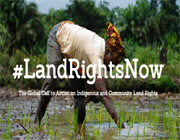
On 19-21 June 2015,a three day training titled “Training of Indigenous Human Rights Defenders on Promoting UPR Recommendations on Indigenous Peoples in Bangladesh” held at FIVDB Training Centre, Sylhet. The training was jointly organised by Kapaeeng Foundation (KF), Bangladesh Indigenous Peoples Forum (BIPF), Sylhet Region and Coalition of Indigenous Peoples Organisations on Universal Periodic Review (UPR). A total of 28 indigenous peoples human rights defenders (IPHRDs) from different parts of the country, belonging to Banai, Barman, Chakma, Garo, Khasi, Manipuri, Marma, Patro, Tripura and Tea-estate community attended the training programme.
In the inaugural session of the three day training programme, Professor Dr. Abdul Awal Bishwas, former Head, Department of Anthropology, Shahajalal University of Science and Technology (SUST); Mr. Dipayan Khisa, noted rights activist; Ms. Chaitali Tripura, Joint-convenor, Bangladesh Indigenous Women’s Network and Member of Bangladesh Indigenous Peoples Forum andMr.Pallab Chakma, Executive Director of Kapaeeng Foundation delivered their speeches while Mr.GourangoPatro, President of Bangladesh Indigenous Peoples’ Forum, Sylhet region and Chairperson of Patro Samproday Kallyan Parishad (PASKOP) presided it over. Silvia Khyang, project officer of Kapaeeng Foundation moderated the session.
In his speech, the chief guest Professor Dr. Abdul Awal Bishwas put spotlight on ongoing violations of the rights of indigenous peoples in Bangladesh. He provided with some cases where justice had been denied by the state authorities. As a result, cases of violations of the rights of indigenous peoples are increasing over the years. He opined that, government should provide indigenous peoples with the recognition to their identity and their rights. He again stated that education is the only means that can empower the indigenous society and create many strong voices that will work together for change.
Indigenous rights activist, Mr. Dipayan Khisa, stated that the overall human rights situation of indigenous peoples in Bangladesh worries him like any other concerned person. He emphasized on the necessity of political movements to change the overall situation of indigenous peoples. Hence, alongside such human rights trainings, human rights defenders must adopt every possible means to protect and promote the rights of indigenous peoples. Further, he encouraged the participants of the training to take lessons on the UPR so they can raise their voices in and around the UPR process.
BIWN Joint-convener Ms.Chaitali Tripura discussed about the indigenous women’s situation in the country. She outlined how the continued cases of land disputes facing indigenous peoples have turned into some of the major sources of violence against indigenous women and girls (VAIWG). She highlighted the fact that women and girls are being targeted by perpetrators to evict indigenous families from their ancestral lands and in part, on other racial contents. She also added that as still many indigenous human rights defenders do not posses clear understanding on the UPR, it is very important to introduce about the mechanisms of UPR among them.
In his welcome speech, Mr. Pallab Chakma, Executive Director of Kapaeeng Foundation, discussed the overall situation of human rights of indigenous peoples in Bangladesh. In order to demand proper justice for the cases of human rights violations and for the security of the indigenous peoples in Bangladesh, he suggested knocking all the available doorways of the international body and going through the UN human rights mechanisms. Part of which the Universal Periodic Review mechanism can be a very critical tool to support Bangladeshi indigenous peoples in creating pressure on the government.
Lastly, the Chair of the inaugural session, Mr. Gourango Patro welcomed the initiative to organise a training programme on UPR mechanism and promotion of UPR recommendations on Bangladesh relating to Indigenous peoples and expected many positive outcomes after this training. He suggested that as this topic is very new to most of the participants, the participants must try to realise the importance of this training and stay focused while the technical sessions of the training would be conducted.
In this three day training programme, several technical sessions were conducted related to human rights mechanisms and UPR. The sessions were, inter alia, on international human rights mechanisms and indigenous peoples rights; situation of indigenous peoples in Bangladesh and national legal frameworks related to indigenous peoples; UPR recommendations on combating VAIWG and access to legal justice; UPR processes and modalities; Bangladesh in UPR and indigenous peoples; monitoring of Implementation of UPR Recommendations, documentation and data gathering related to UPR; lobby and advocacy related to UPR; preparation of stakeholder report; scenario/role play on UPR session; way forward and evaluation. The technical sessions were facilitated by, among others, Advocate Shirin Akhter; Barrister Subrata Paul; Anurag Chakma; Pallab Chakma; Hiran Mitra Chakma; Bablu Chakma and Manik Soren.



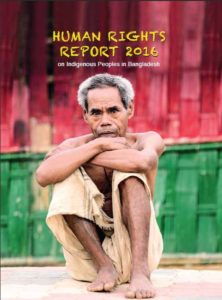
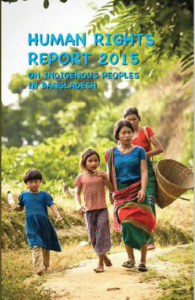
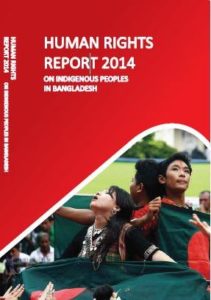
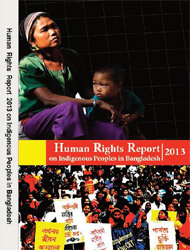
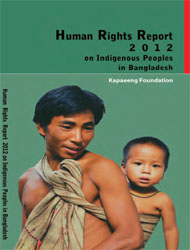
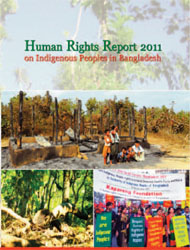
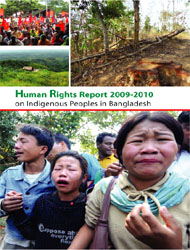

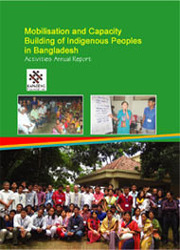



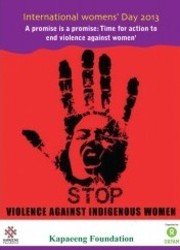
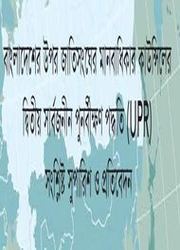
 July 16th, 2015
July 16th, 2015  KapaeengUser
KapaeengUser  Posted in
Posted in 